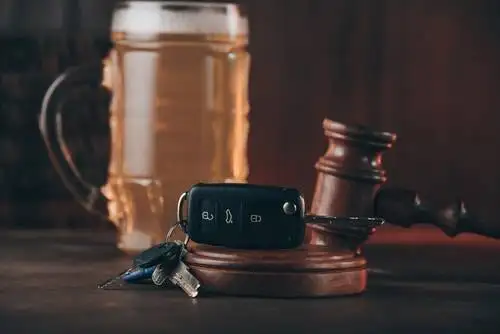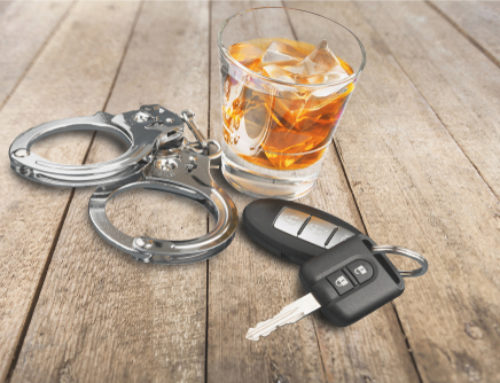When the police pull you over on suspicion of drunk driving, there are a lot of mistakes you can make on the side of the road. One of these mistakes is admitting that you have been drinking. But, how costly is this mistake really—and can you still fight your DUI if you admitted to drinking in Arizona?
Many people are surprised to learn that admitting they have been drinking does not guarantee a guilty verdict in court. Or, at least, it shouldn’t guarantee a guilty verdict. There are several ways to fight a DUI if you told the police that you had been drinking, although asserting these defenses effectively requires experienced legal representation.
4 Options for Fighting Your Arizona DUI if You Admitted to Drinking
How can you fight your Arizona DUI charge if you admitted that you were drinking? Depending on the facts of your case, here are four options you may have available:
Option #1: Focusing on What You Actually Said to the Police
The first option is to focus on what you actually said to the police. While many people assume they admitted to breaking the law, oftentimes this isn’t actually the case. Let’s consider a common scenario:
You got pulled over, and the police officer asked you if you had been drinking. You said “Yes,” and then the officer proceeded to test your blood alcohol concentration (BAC) and book you for DUI.
So, what really happened? In this scenario, all you admitted is that you had been drinking. You didn’t admit that you were drunk, and you didn’t admit that your driving abilities were impaired. You didn’t even admit when you had your last drink or how much you drank before getting behind the wheel.
All of these are critical facts for determining if you are guilty of DUI. Based on what you said, it could have been several hours since your last drink, and you could have just had one light beer. In other words, the fact that you said “Yes” has little relevance—if any—to your DUI case.
But, what if you said more? For example, what if the officer asked if you knew why he pulled you over and you said, “Because I was driving under the influence?”
Even in this scenario, your admission isn’t necessarily evidence of guilt. While there are several reasons why, the simplest reason is that you might be wrong. Unless you are familiar with Arizona’s DUI statute and an expert in assessing alcohol impairment, the reality is that you don’t know if you’re guilty or not. This makes your “confession” inherently unreliable, and it means that prosecutors shouldn’t be able to use it against you at trial.
Option #2: Keeping Your “Confession” Out of Court
Another option for dealing with a “confession” during an Arizona DUI case is to try to keep your statement out of court. This involves showing that the police violated your constitutional rights during your traffic stop or arrest. This could mean that either:
- The police stopped you without reasonable suspicion (i.e., they profiled you);
- The police arrested you without probable cause; or,
- The police interrogated you in custody without reading your Miranda rights.
If the police violated your constitutional rights, then any incriminating evidence they obtained subsequent to the violation may be inadmissible in court. This means that if the police obtained your “confession” unconstitutionally, prosecutors may not be able to use it against you.
Keep in mind, this doesn’t only apply to any statements you made during your traffic stop or arrest. If the police secured other evidence (i.e., your BAC reading or field sobriety test results) after violating your constitutional rights, this evidence may be inadmissible as well.
Option #3: Leaning on the Prosecution’s Burden of Proof
Even if your statement to the police is admissible, and even if prosecutors can find a way to use it against you, they still need to meet their burden of proof. If prosecutors cannot prove your guilt beyond a reasonable doubt, then you are entitled to a “not guilty” verdict regardless of the facts at hand.
As a defendant facing a DUI charge, leaning on the prosecution’s burden of proof can be a key defense strategy. You don’t have to prove that you are innocent—you just have to prevent the prosecution from proving that you are guilty. If you (or your defense lawyer) can show that the prosecution’s evidence does not add up to “firmly convince” jurors of your guilt, then you are entitled to a dismissal under Arizona law.
Option #4: Negotiating a Plea Bargain that Avoids a DUI Conviction
Finally, if securing a “not guilty” verdict isn’t realistic based on the circumstances of your case, you may still be able to avoid a DUI conviction by having your defense lawyer negotiate a plea bargain on your behalf. Oftentimes, this involves pleading to what is commonly known as, “reckless driving”. While this still means accepting responsibility—which means that you need to make your decision to pursue a plea bargain very carefully—the consequences of “reckless driving” are far less serious than the consequences of a DUI.
How do you know which option to pursue? Deciding how to handle a DUI case requires a thorough assessment of the circumstances involved. It also requires in-depth knowledge of Arizona’s DUI laws and the constitutional protections that apply. As a result, before you do anything that could jeopardize your defense, you need to discuss your case with an experienced DUI defense lawyer.
Find Out How You Can Fight Your DUI Charge in Arizona for Free
Admitting that you were drinking does not necessarily mean that you will be convicted of driving under the influence. To find out how you can fight your Arizona DUI charge, contact us for a free consultation today. Call 480-405-7922 or tell us how we can reach you online to schedule an appointment with an experienced DUI defense lawyer in Tempe, AZ.






